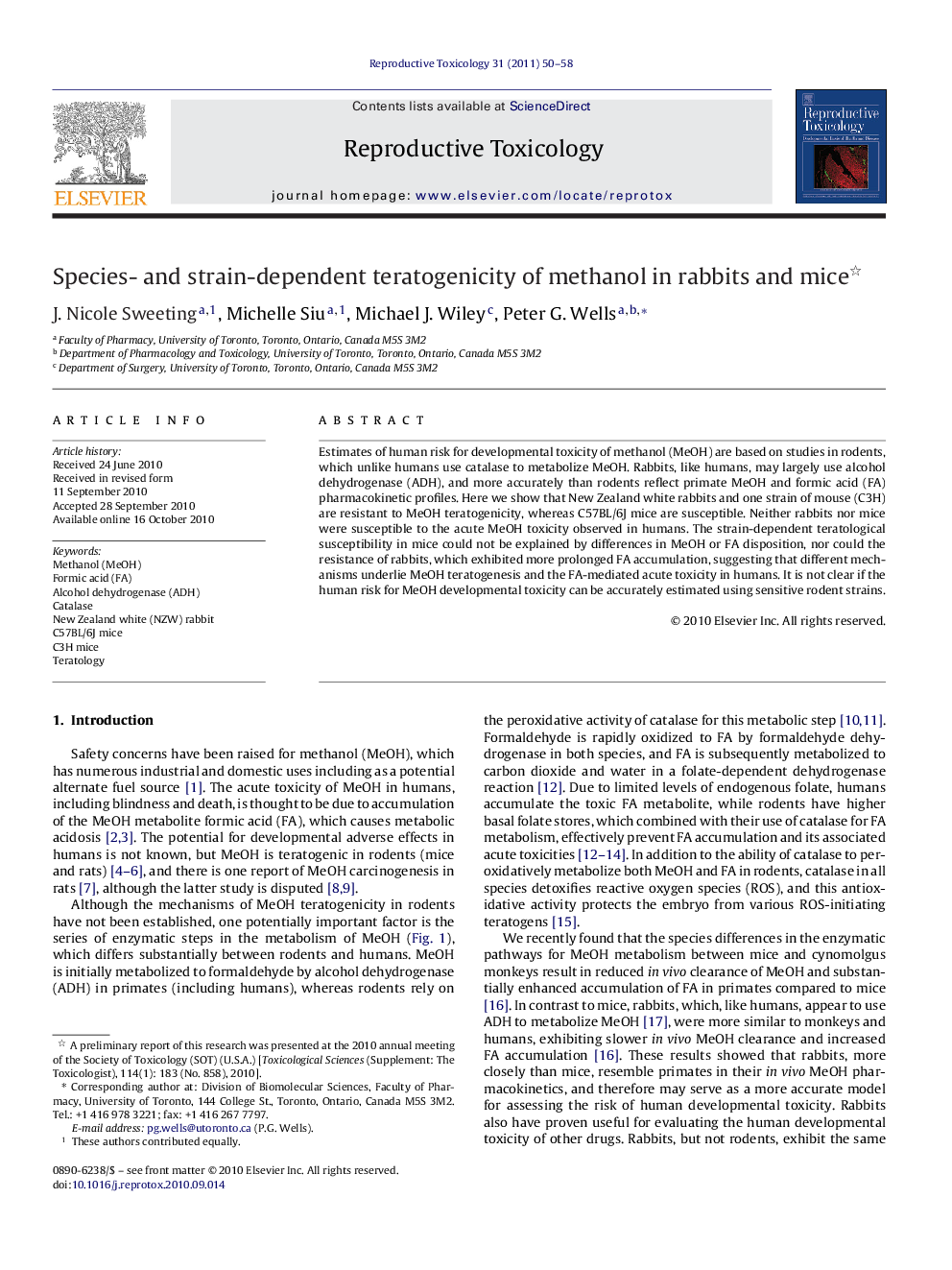| کد مقاله | کد نشریه | سال انتشار | مقاله انگلیسی | نسخه تمام متن |
|---|---|---|---|---|
| 2593897 | 1132253 | 2011 | 9 صفحه PDF | دانلود رایگان |

Estimates of human risk for developmental toxicity of methanol (MeOH) are based on studies in rodents, which unlike humans use catalase to metabolize MeOH. Rabbits, like humans, may largely use alcohol dehydrogenase (ADH), and more accurately than rodents reflect primate MeOH and formic acid (FA) pharmacokinetic profiles. Here we show that New Zealand white rabbits and one strain of mouse (C3H) are resistant to MeOH teratogenicity, whereas C57BL/6J mice are susceptible. Neither rabbits nor mice were susceptible to the acute MeOH toxicity observed in humans. The strain-dependent teratological susceptibility in mice could not be explained by differences in MeOH or FA disposition, nor could the resistance of rabbits, which exhibited more prolonged FA accumulation, suggesting that different mechanisms underlie MeOH teratogenesis and the FA-mediated acute toxicity in humans. It is not clear if the human risk for MeOH developmental toxicity can be accurately estimated using sensitive rodent strains.
Journal: Reproductive Toxicology - Volume 31, Issue 1, January 2011, Pages 50–58